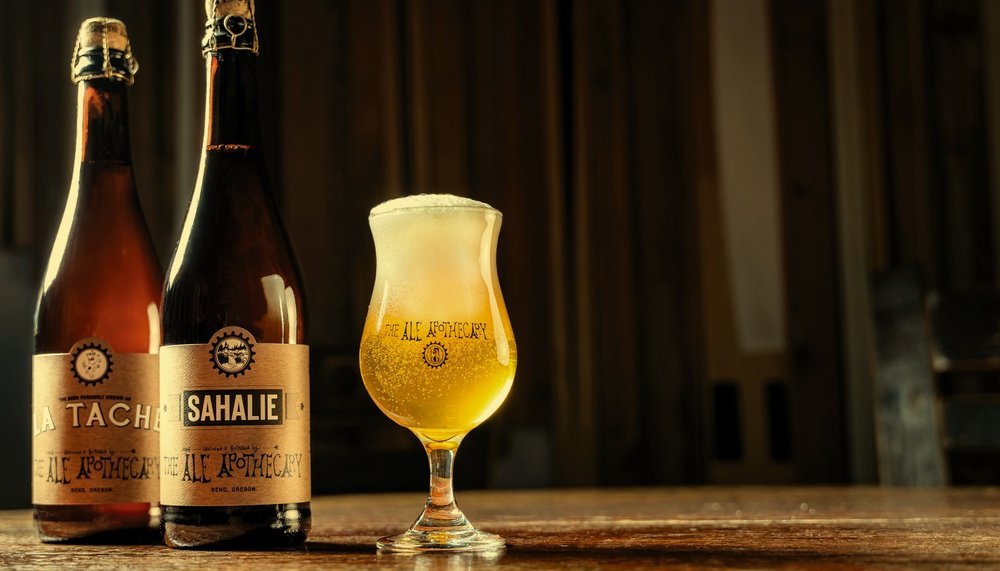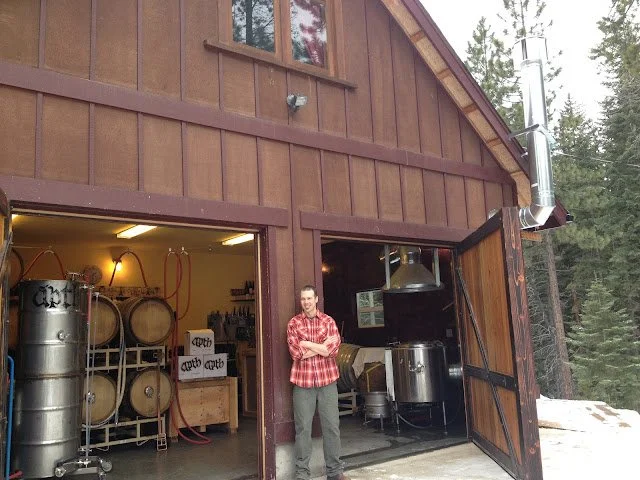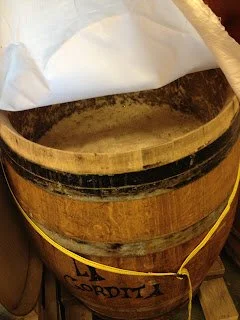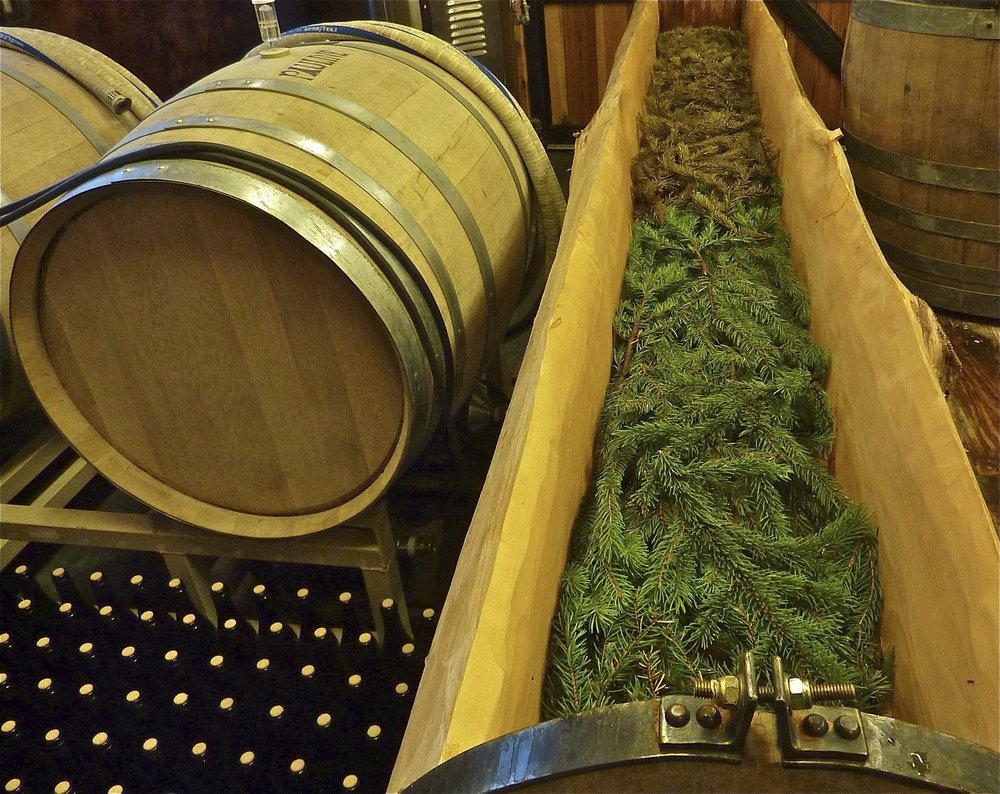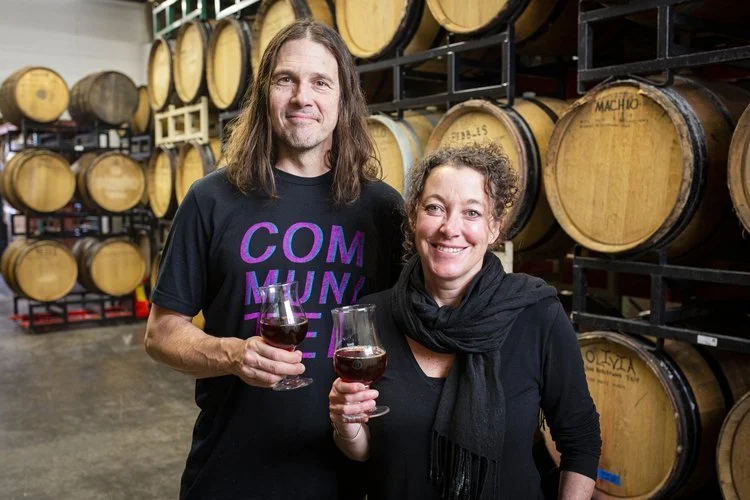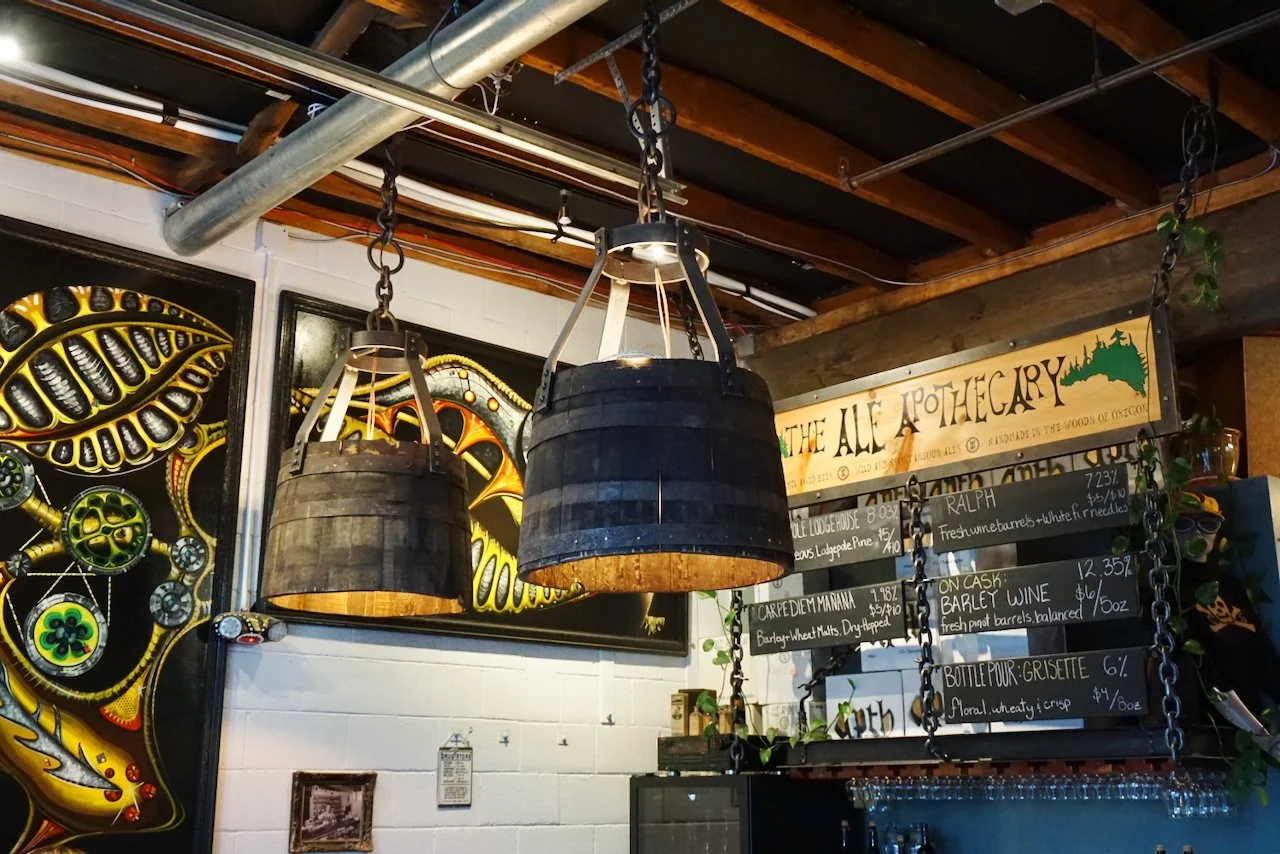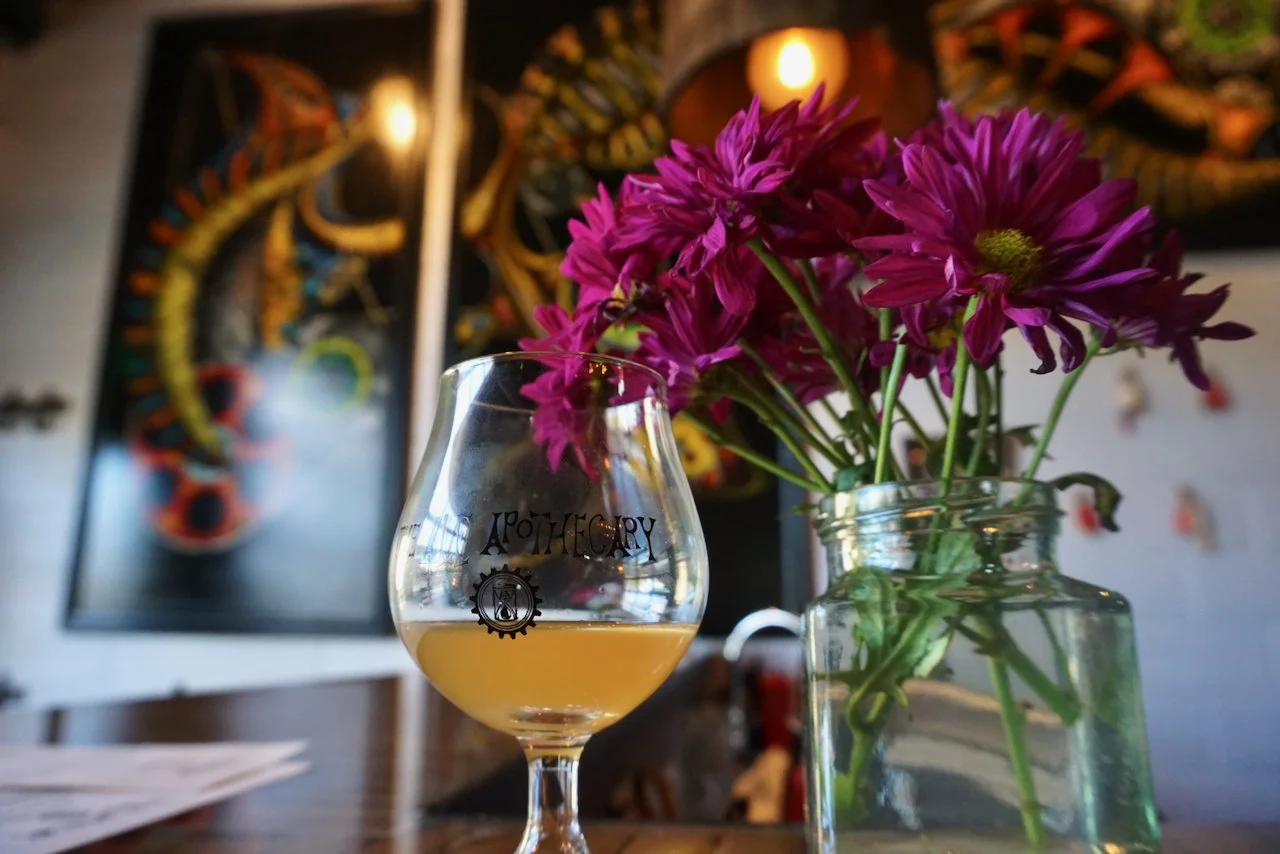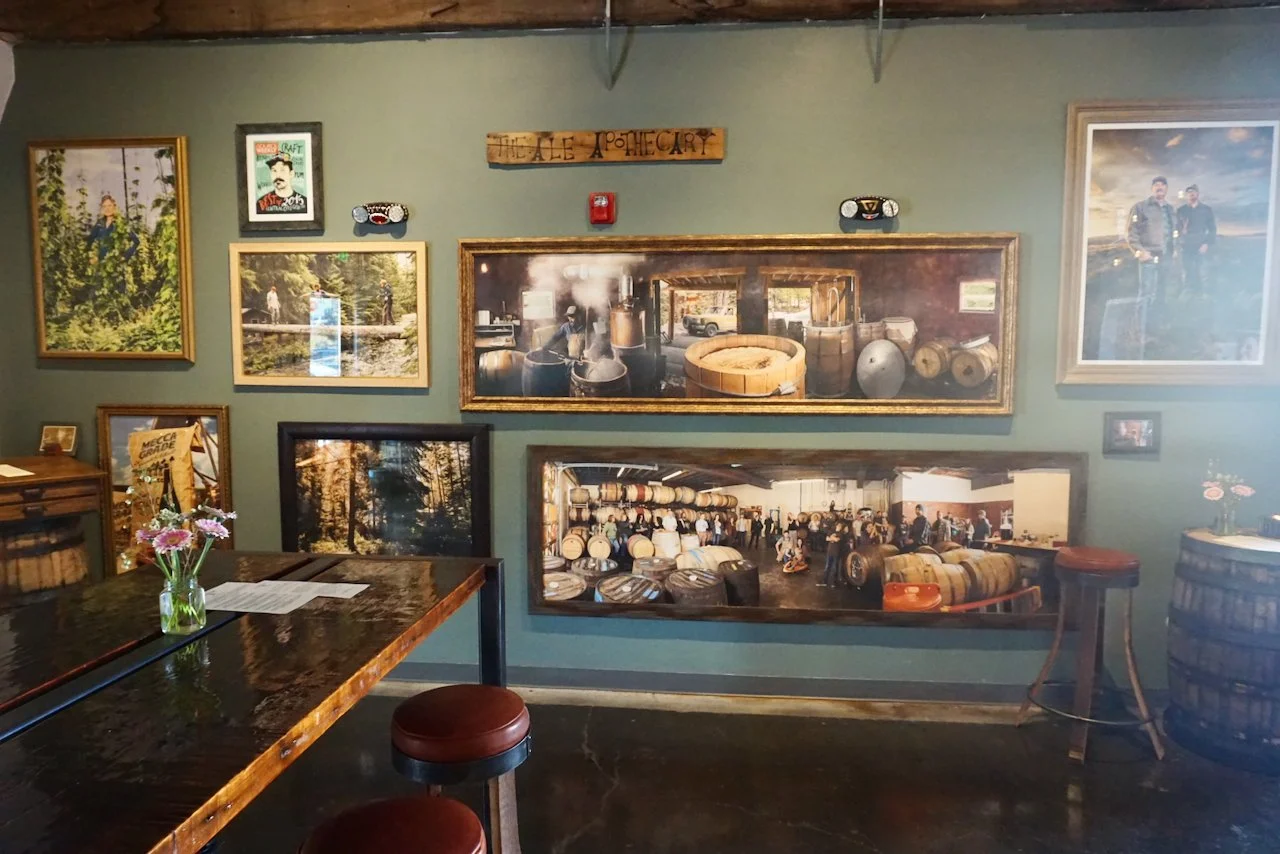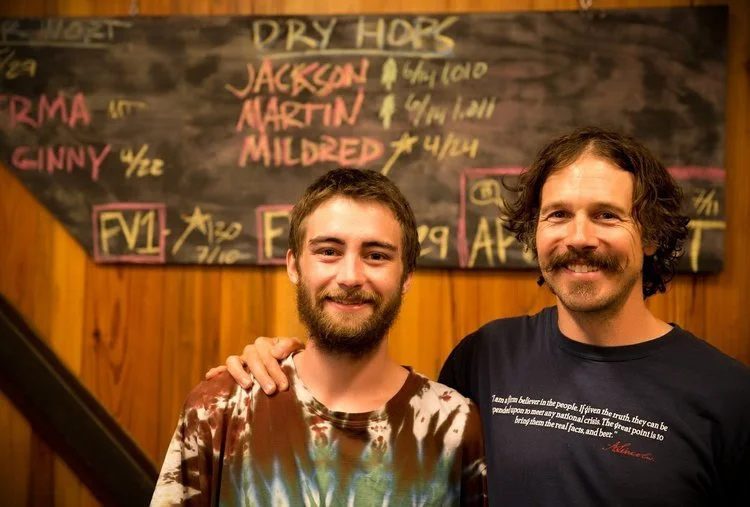The Ale Apothecary is for Sale. Founder Paul Arney is retiring from the industry.
Bend, Oregon’s influential funky wild and foraged ales maker The Ale Apothecary is for sale, as founder Paul Arney is retiring from the beer industry to pursue a new adventure. Head brewer Connor Currie is hoping to stay onboard and shepherd the brewery to a new owner who will hopefully keep some of the spirit of the Ale Apothecary alive.
6/27/2024 Update: The Ale Apothecary has been Sold
-
6/27/2024 Update: The Ale Apothecary has been Sold -
“When I started Ale Apothecary there was a lot of pressure behind it,” says Ale Apothecary founder Paul Arney. “I only had about 3 months to get my shit together and figure out what I was going to do. I am super proud of it and what we built, the timing was great with the family, but it was super ambitious. Sometimes you dont see the forest from the trees. My kids are about ready to leave the house, so to not have some crazy project to be taking my time away before they will be gone will be nice.”
Paul Arney at The Ale Apothecary brewery in Deschutes National Forest circa 2013
New School Beer + Cider was the first media outlet to write about The Ale Apothecary in February 2013 in an article “The Ale Apothecary's Jovial Recluse” by Brian Yaeger. Their beers are spontaneously fermented with wild yeasts, aged in oak barrels, and often with fruit, and unique estate malts or grains, and whole cone hops. They are known for bottle conditioned beers such as Sahalie, La Tache, El Cuatro, and Ralph.
Founded in 2012, The Ale Apothecary quickly jumped to the forefront of national coverage for his unusual but historical methods of brewing. The first beer recognized by New School and other publications was the Sahti, brewed in the Finish historical tradition of a hollowed out “kuurna” Juniper log filled with branches, however Arney used Spruce as the trees were native and available near his home and brewery in the Deschutes National Forest some 10 miles outside of Bend.
“the kuurna looks like a trough or even a canoe that Paul and some very helpful friends hand-carved over a few months out of an Englemann Spruce tree from his property,” wrote Brian Yaeger in the original 2013 article. “The kuurna is used as a mash tun—it holds about two barrels by volume—for his Finnish-style Sahati ale and is indicative of how every little thing is done by hand.”
In 2015, Paul Arney was named Brewer of the Year by Bend, Oregon’s alt-weekly The Source. That same year the daily Bend Bulletin featured the brewery and highlighted their beer Sahti which by then was putting them on the map for aficionados of farmhouse and true farmhouse and Lambic lovers aross the the world. The Ale Apothecary was featured in Scandinavian magazines, and U.S. drinks publications like Imbibe Magazine, acclaimed podcasts, and short films.
Paul Arney and Staci Arney
Until recently Arney had not considered leaving the industry or selling the brewery. His commitment to the absurdly hands-on approach to brewing, Blending, cellaring, and staying true to the beer and unusual ingredients and approaches was still strong. But while looking at their sales numbers last year, Paul’s wife Staci Arney came to the realization that she needed to take another job. At first Paul was against it, but she wisely had her sights set on working towards their eventual retirement. The Ale Apothecary’s sustaining ale club membership numbers were dipping substantially, and then the U.S. sales of their bottles fell off a cliff in the last year.
The downturn of the craft beer industry from more than a decade of growth year-over-year to flat or falling sales has particularly effected “premium” or more artisanal wild ales like saisons and sour beers that are more costly and time intensive to make with foraged ingredients and signature yeasts and bacterias. Consumer tastes have changed towards kettle quick sours that are not as complex, but much more affordable. That realization has hit Paul hard, though he says he does not blame the beer drinkers themselves for changing tastes.
“I always realized beer was trendy, but I dont think I realized it was sooo trendy. When I got into it, my thought process was that if we establish this product that has this value and integrity that is tied to the history and the craft and if the product is good there will be enough interest to sustain it,” says Arney. “[for sales and trends] to turn on a dime so much I don’t know if people were really tasting and appreciating the beer. I have to think that at some level there were a lot of people that didn’t get it and they were buying the beer for other reasons then what I was making them for. But I dont know.”
Arney still believes that if he refocused the brewery with more of a taproom focused operation with a real kitchen or food truck and more styles of beer that move volume it could be successful. But that would take Arney away from the art of brewing and keeping the production small and esoteric just as he envisioned it from the beginning. With his father currently in hospice care and his kids nearing adulthood, the time just seems right for Paul to get out.
“Brewing has been great, the industry has been great, The Ale Apothecary has been great, but I think this is a sign that I need to mix it up a little bit. It is intense, my dad is going through this thing, and the brewery is in my house,” says Arney.
(Below: Images from The Ale Apothecary tasting room in Bend)
The Ale Apothecary brews outside of his house in the woods, then finishes, blends and bottles in the barrel room where the tasting room currently resides at 30 SW Century Drive, Suite 140 Bend, OR 97702. After talking with his landlord, Arney believes it would be easy to move the brewhouse to the barrel room as there are already floor drains and a production area, he has also put in new conical tanks and it could be easily restructured towards a single location business, perhaps with a kitchen or on-site food truck. The location is good, in the same complex as GoodLife Brewing and the Prost! German beer hall and with plenty of parking.
“There were things that I couldn’t or didn’t want to do that could have made me more successful. I didn’t build a local support network, I really should have found a way to make that spot have local community support,” adds Arney. “The brewery can function right now and make plenty of beer for it. I think you would want to build up the tasting room and establish that as more of a place where you can sell some volume across the bar. You need to devote more effort to the beers that are volume sellers, and to me that is very deflating. It just makes sense for me to get out now.”
Brewer Connor Currie (left) and Paul Arney
The Ale Apothecary is currently listed for sale by broker for $200k, with Arney willing to stay onboard and provide access to his current brewing facility in the Deschutes National Forest for a limited amount of time during a potential transition. Brewer Connor Currie is committed to helping facilitate the process and stay onboard with a new partner to keep the legacy that the Arney’s started alive.
What’s next for Arney? He doesn’t know, but he figures he has about 6 months to figure out what is next for him, and he is looking forward to that next adventure.


